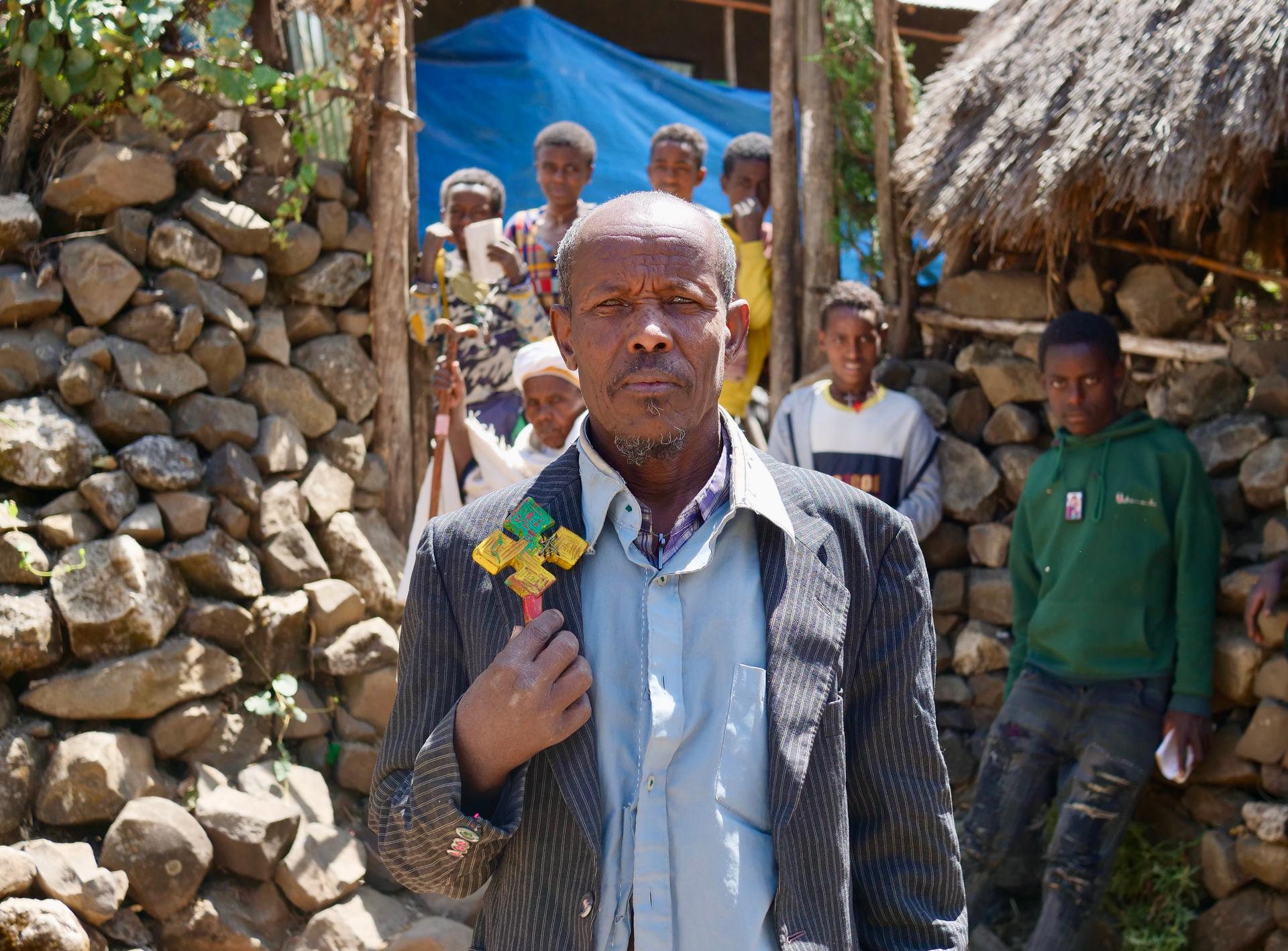After months of fighting, Ethiopia’s Amhara region tries to recover from war
The scars of war are visible all around the Amhara region of northern Ethiopia.
Military tanks and vehicles collect rust alongside the road. Homes destroyed by weapons barely hold up against the elements.
Related: Fighting continues in Ethiopia amid UN call for human rights probe
Last year, the region became the heart of the ongoing fighting between Ethiopia’s federal government and the Tigray People’s Liberation Front (TPLF).
The conflict first broke out in Tigray in November 2020 following mounting tensions between the federal government, led by Prime Minister Abiy Ahmed, and the TPLF leaders, who had led the country for 20 years prior.
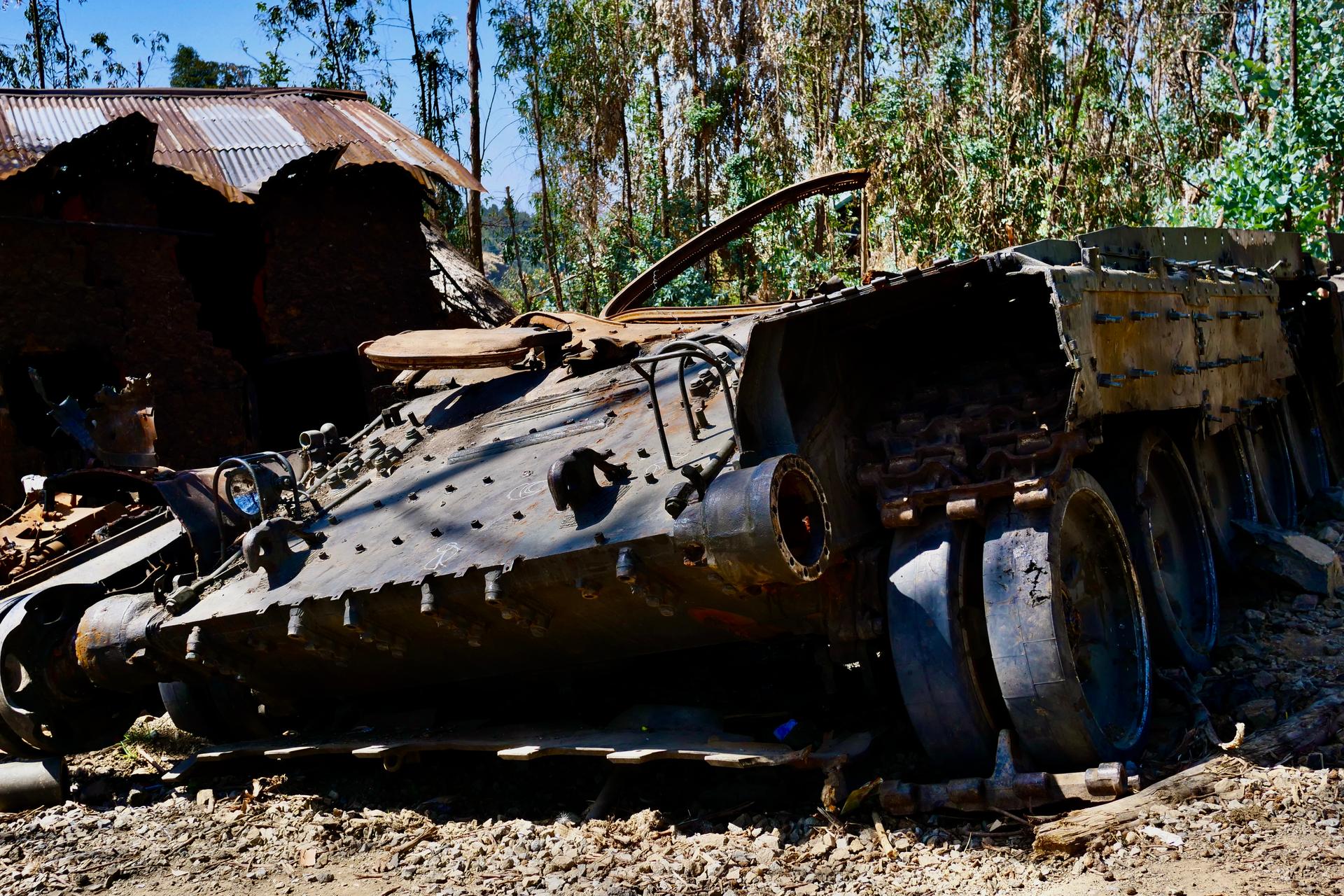
It’s since expanded to neighboring Amhara and Afar regions, killing thousands of people and displacing hundreds of thousands more.
While fighting has lulled in Amhara since December after federal forces pushed out the TPLF, the region is still struggling to recover. To date, many areas still don’t have electricity, running water or adequate food.
Related: Ethiopian PM begins 2nd term saying war exacts ‘heavy price’
The months of fighting have disrupted a critical farming season, leaving millions of people in need of food assistance in Amhara as well as in the Tigray and Afar regions, where the fighting continues.
On a recent afternoon at a crowded warehouse in Meket, in Ethiopia’s Amhara region, hundreds of people rushed to collect food aid — wheat and other grains — supplied by USAID.
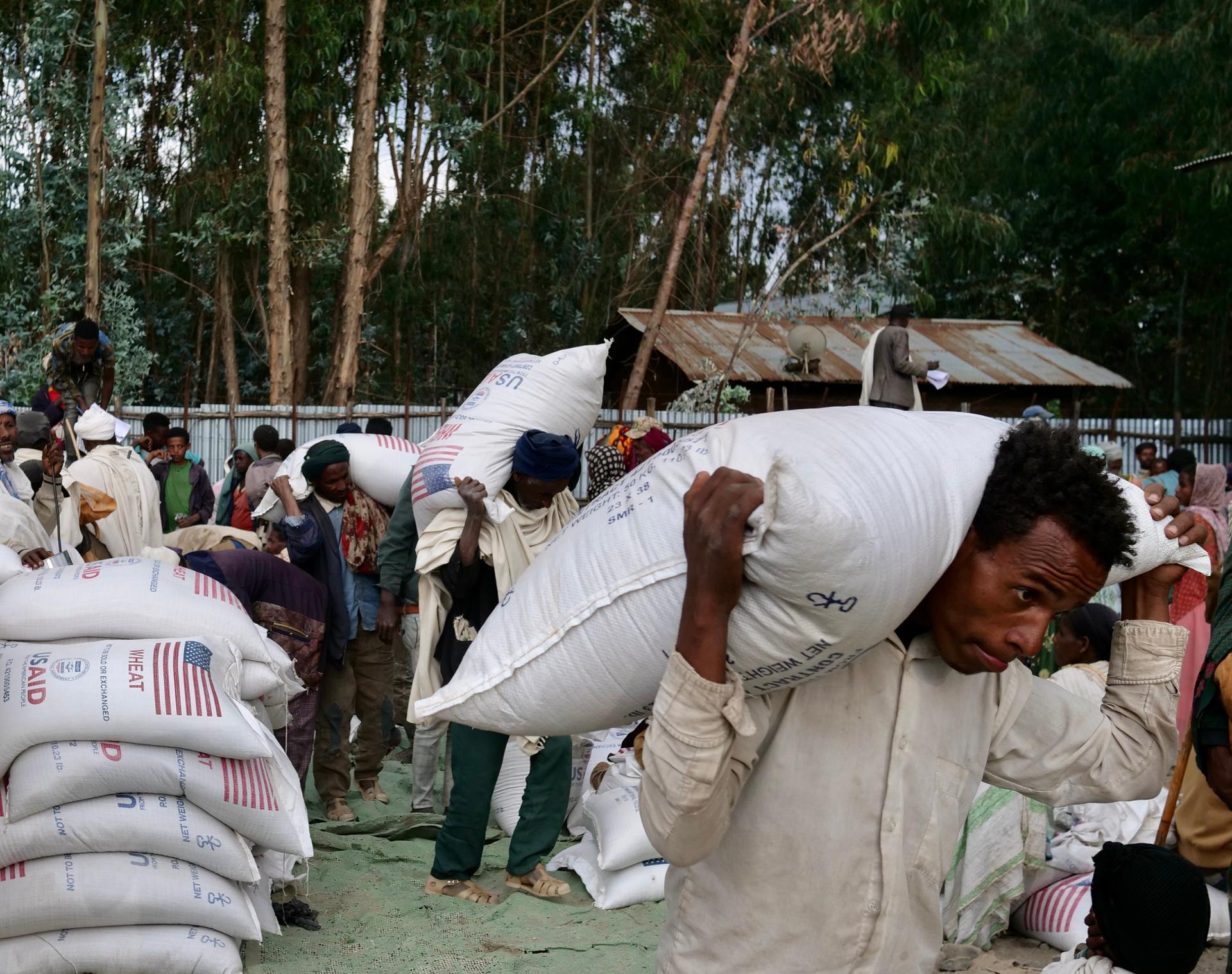
“Because of the war, the harvest was small,” explained 18-year-old Tesfa Kasow, who has waited for hours to get food.
“But the aid is helping,” she added.
“People didn’t harvest. So, they don’t have any food.”
“People didn’t harvest. So, they don’t have any food,” said Mulat Baye, who manages the distribution warehouse in Meket, which he said is serving food to more than 48,000 people.
“But peaceful conditions continue. There’s hope for the next harvest season,” he said.
Related: Ethiopia officials accuse Tigray rebels of massacre as conflict expands
Recovering from the horrors of the war will take much longer.
“Classes have started again, but I can’t fully concentrate on my studies,” said 22-year-old Minelik Desalegn. “I haven’t recovered.”
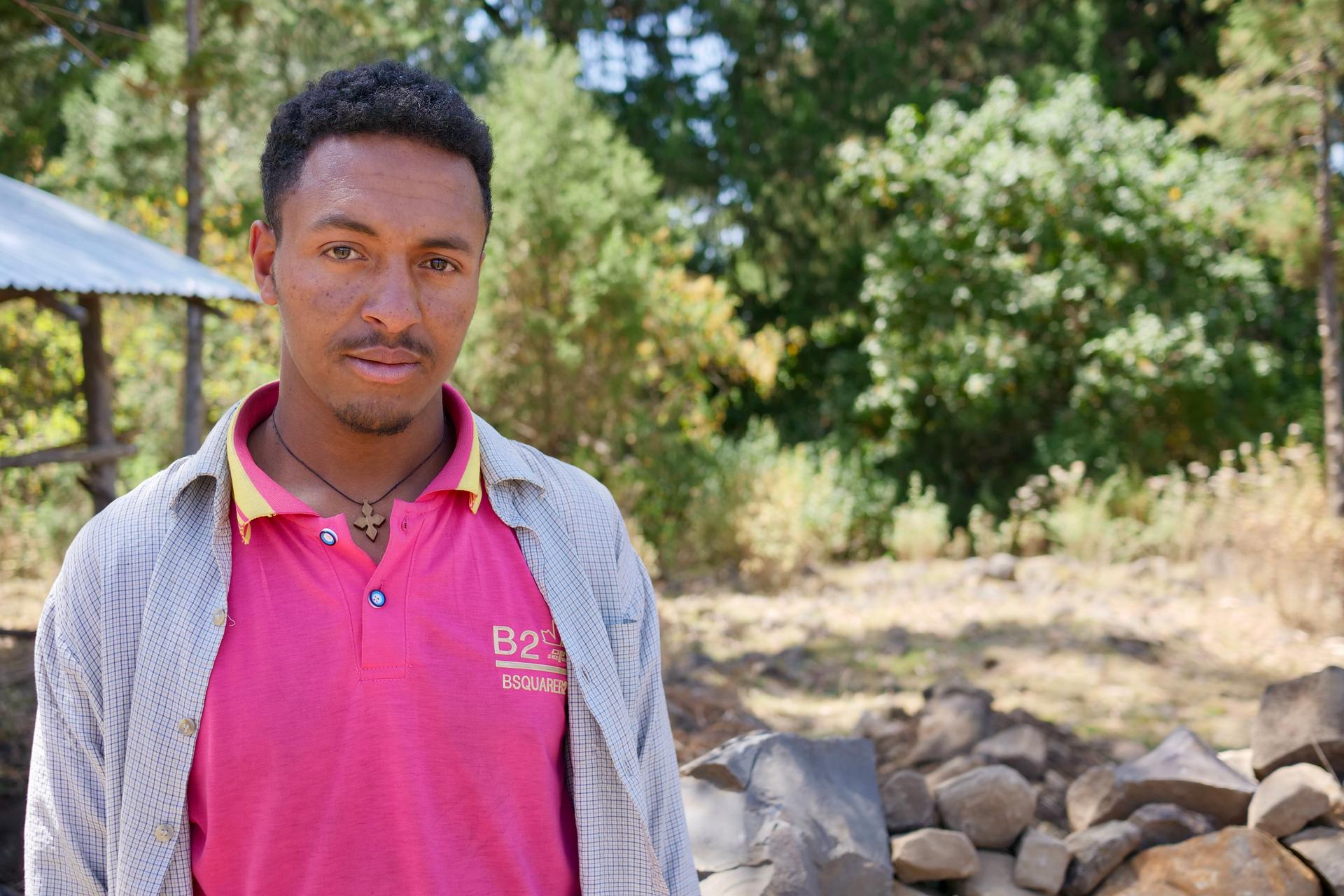
Desalegn said that when the TPLF controlled his area last year, the fighting was intense.
One night this past October, an aerial weapon fell on his sister’s house, killing her and her husband and their 4-year-old daughter.
Desalegn’s nephew, 12-year-old Muluken Tilahun, was the only survivor.
“I was sleeping. Then, when I woke up, there was fire burning,” Tilahun said.
Related: ‘Eritrean forces have to get out of Ethiopia,’ analyst says
“I was injured on my legs and hands,” Tilahun said.
Desalegn, the uncle, said that the family is unable to afford medical treatment.
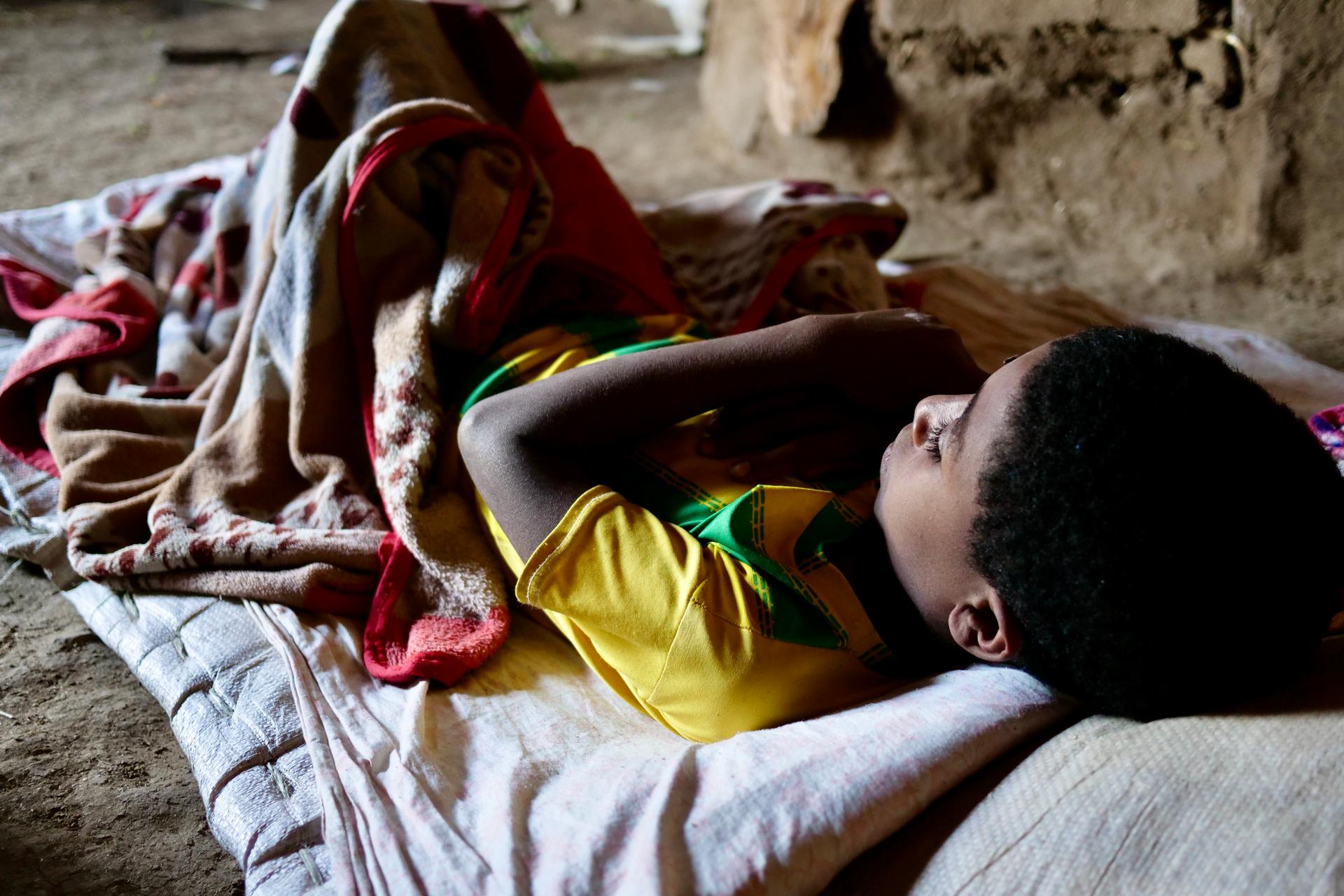
At a nearby church where Tilahun’s parents are now buried, young religious students recited scripture verses under the watchful eyes of priest Ayalew Setegn.
“Many people were injured and houses damaged in the area,” priest Ayalew Setegn said.
“I tell people to go pray, go to church. I pray God will bring peace.”
“I tell people to go pray, go to church,” Setegn said. “I pray God will bring peace.”
But so far, peace has been elusive. Multiple attempts at mediation by the African Union, UN and US and European envoys have failed over the past year.
In another area of the same district, farmer Gashaw Demise stood in front of his destroyed home.
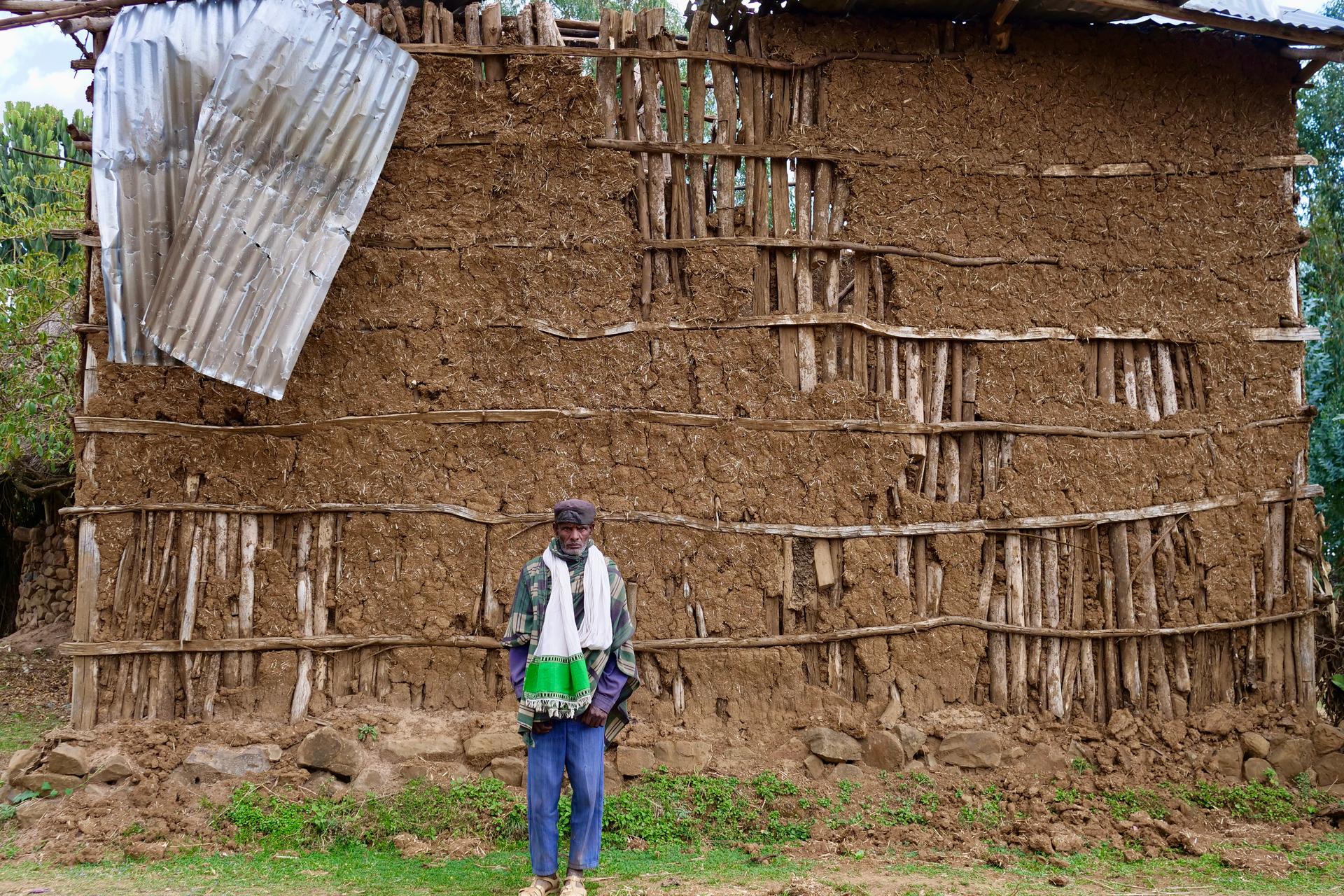
“Emotionally, I’m not in good shape,” he said quietly.
Four of his family members were killed when an aerial weapon fell on their home as the TPLF occupied the area.
“My daughter and many others died,” he said.
When the federal government retook the region in December, Demise said that he felt more secure.
But recently, he’s seen military forces leave the area, making him worry that the TPLF could come back.
Firew Ayele contributed to this report.
Our coverage reaches millions each week, but only a small fraction of listeners contribute to sustain our program. We still need 224 more people to donate $100 or $10/monthly to unlock our $67,000 match. Will you help us get there today?
